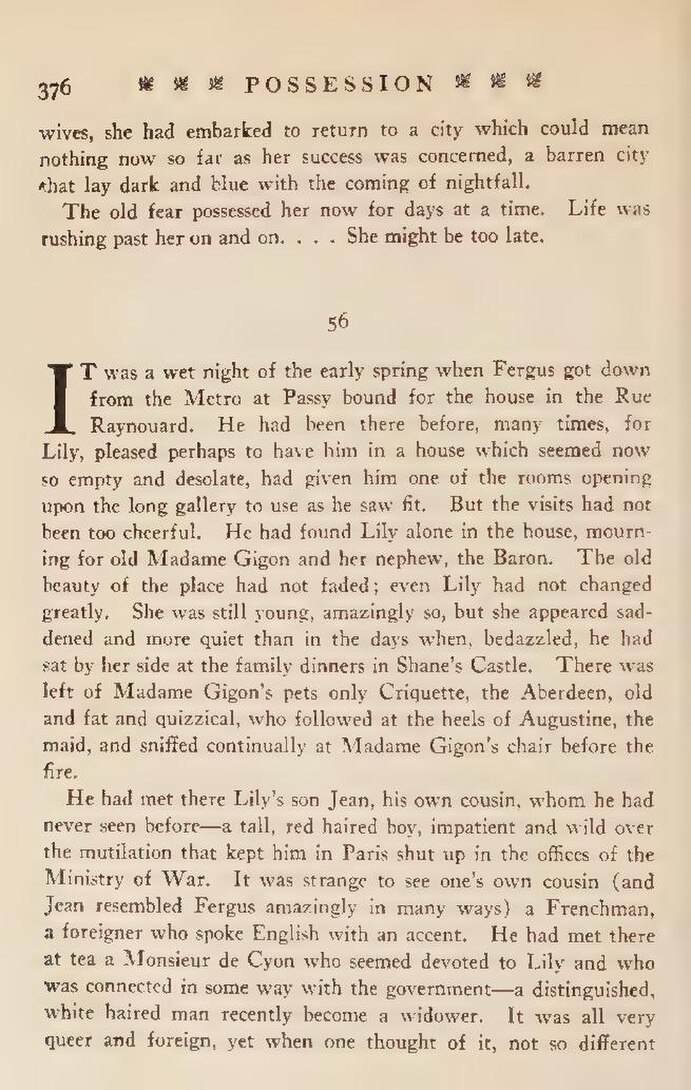wives, she had embarked to return to a city which could mean nothing now so far as her success was concerned, a barren city that lay dark and blue with the coming of nightfall.
The old fear possessed her now for days at a time. Life was rushing past her on and on. . . . She might be too late.
IT was a wet night of the early spring when Fergus got down from the Metro at Passy bound for the house in the Rue Raynouard. He had been there before, many times, for Lily, pleased perhaps to have him in a house which seemed now so empty and desolate, had given him one of the rooms opening upon the long gallery to use as he saw fit. But the visits had not been too cheerful. He had found Lily alone in the house, mourning for old Madame Gigon and her nephew, the Baron. The old beauty of the place had not faded; even Lily had not changed greatly. She was still young, amazingly so, but she appeared saddened and more quiet than in the days when, bedazzled, he had sat by her side at the family dinners in Shane's Castle. There was left of Madame Gigon's pets only Criquette, the Aberdeen, old and fat and quizzical, who followed at the heels of Augustine, the maid, and sniffed continually at Madame Gigon's chair before the fire.
He had met there Lily's son Jean, his own cousin, whom he had never seen before—a tall, red haired boy, impatient and wild over the mutilation that kept him in Paris shut up in the offices of the Ministry of War. It was strange to see one's own cousin (and Jean resembled Fergus amazingly in many ways) a Frenchman, a foreigner who spoke English with an accent. He had met there at tea a Monsieur de Cyon who seemed devoted to Lily and who was connected in some way with the government—a distinguished, white haired man recently become a widower. It was all very queer and foreign, yet when one thought of it, not so different
